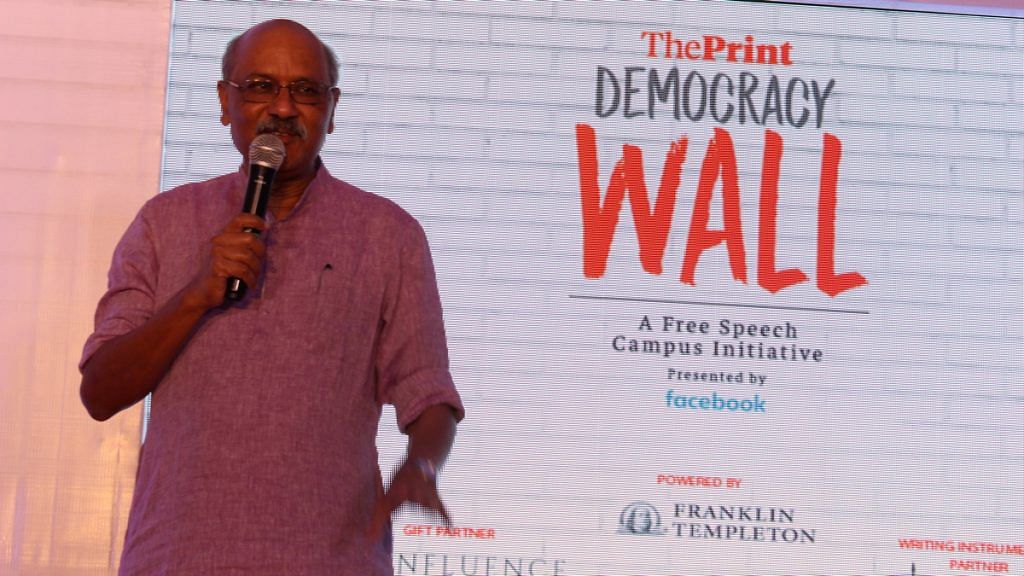New Delhi: The BJP won all of two seats in its maiden Lok Sabha election in 1984 but still proved a better opposition than the Congress is now with 52 seats, ThePrint Editor-in-Chief Shekhar Gupta said Friday.
He was answering questions at this year’s third edition of Democracy Wall, a free-speech campus initiative launched by ThePrint in collaboration with Facebook, at NALSAR University of Law in Hyderabad
“Even with two seats, the BJP turned out to be a better opposition than the Congress is right now with 52,” Gupta said, replying to a question about the current state of the opposition in India.
The year 1984 marked a similar watershed in Indian politics as 2014, which saw Narendra Modi and the BJP seize the national stage with an absolute majority at the Centre. Thirty years before, a sympathy wave in the wake of then Prime Minister Indira Gandhi’s assassination had brought the Congress to power with 415 seats.
The BJP, which was formed in 1980, had won two seats.
According to Gupta, misuse of power is the reason behind the opposition’s weak state. “The use that government agencies are being put to right now was never done in a non-Emergency period before, people are afraid. It is a little bit of shock-and-awe for the opposition right now,” he added.
Over recent weeks, opposition leaders P. Chidambaram, D.K. Shivakumar and Sharad Pawar have either been arrested or booked for different cases, some dating years back.
Gupta was also asked what he thought about press freedom in current times, as compared to the curbs imposed during the days of the Emergency under Indira Gandhi.
“The Emergency period was very important for us because it taught us the importance of a free press,” Gupta said. “But we live in much messier times now,” he added, noting how social media is used to pressure the press.
“Social media has been weaponised by some groups better than others, for example, (US President Donald) Trump uses social media to attack anyone who disagrees with him,” he added.
He said “triple weaponisation under this government”, that is, weaponisation of “investigative agencies like the Central Bureau of Investigation and the ED, social media and TV channels… has made it much more difficult for the press”.
Newsroom becomes gender-equal
Gupta also weighed in on gender balance in the newsroom, hailing media as the “most gender-equal profession”.
“The gender balance in newsrooms is now skewed in the other direction,” he said.
He also talked about the representation of communities like Dalits and Muslims in the newsroom.
“I think Dalit representation is still inadequate and through our indirect affirmative actions we found that bright Dalit students feel more drawn towards government jobs,” he said.
“Minority representation, Muslims, in particular, has improved a lot,” Gupta added.
Other guests at Friday’s Democracy Wall event included Congress politician Jaiveer Shergill, Masaan actor Shweta Tripathi, and journalist Pamposh Raina.
Also read: Congress backs NRC in Assam, but not the way it is being implemented: Jaiveer Shergill
